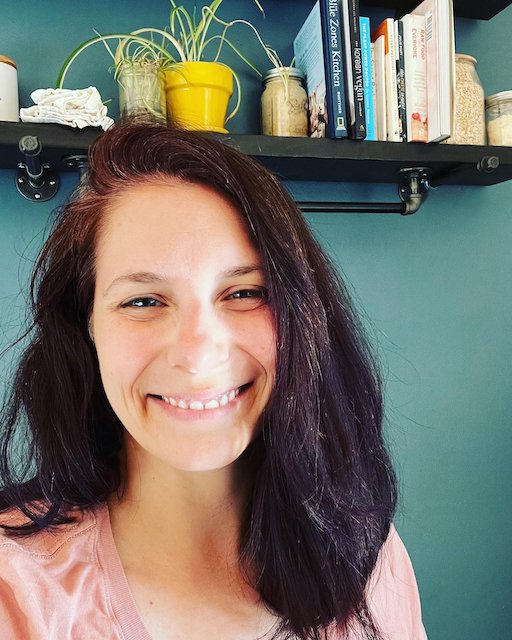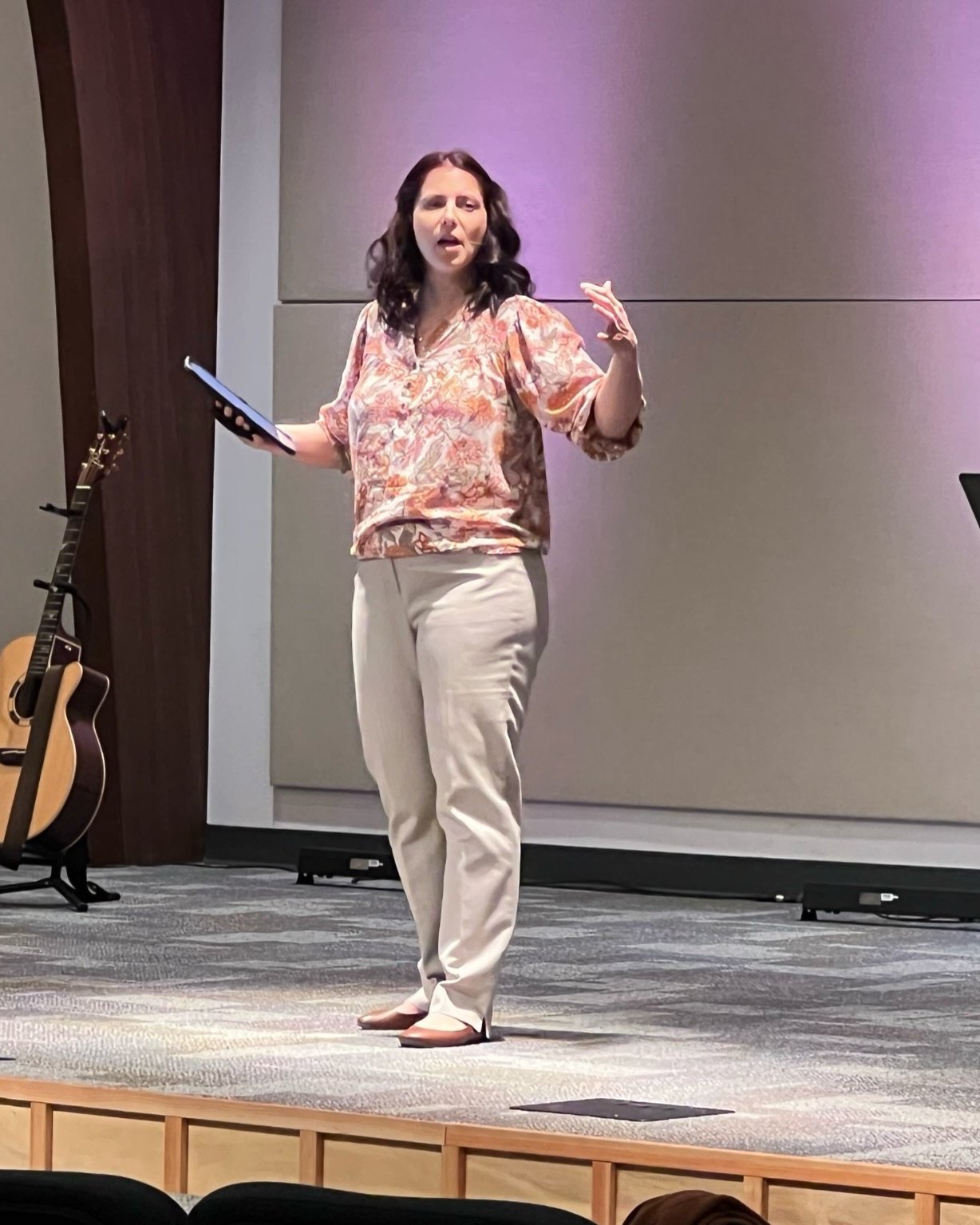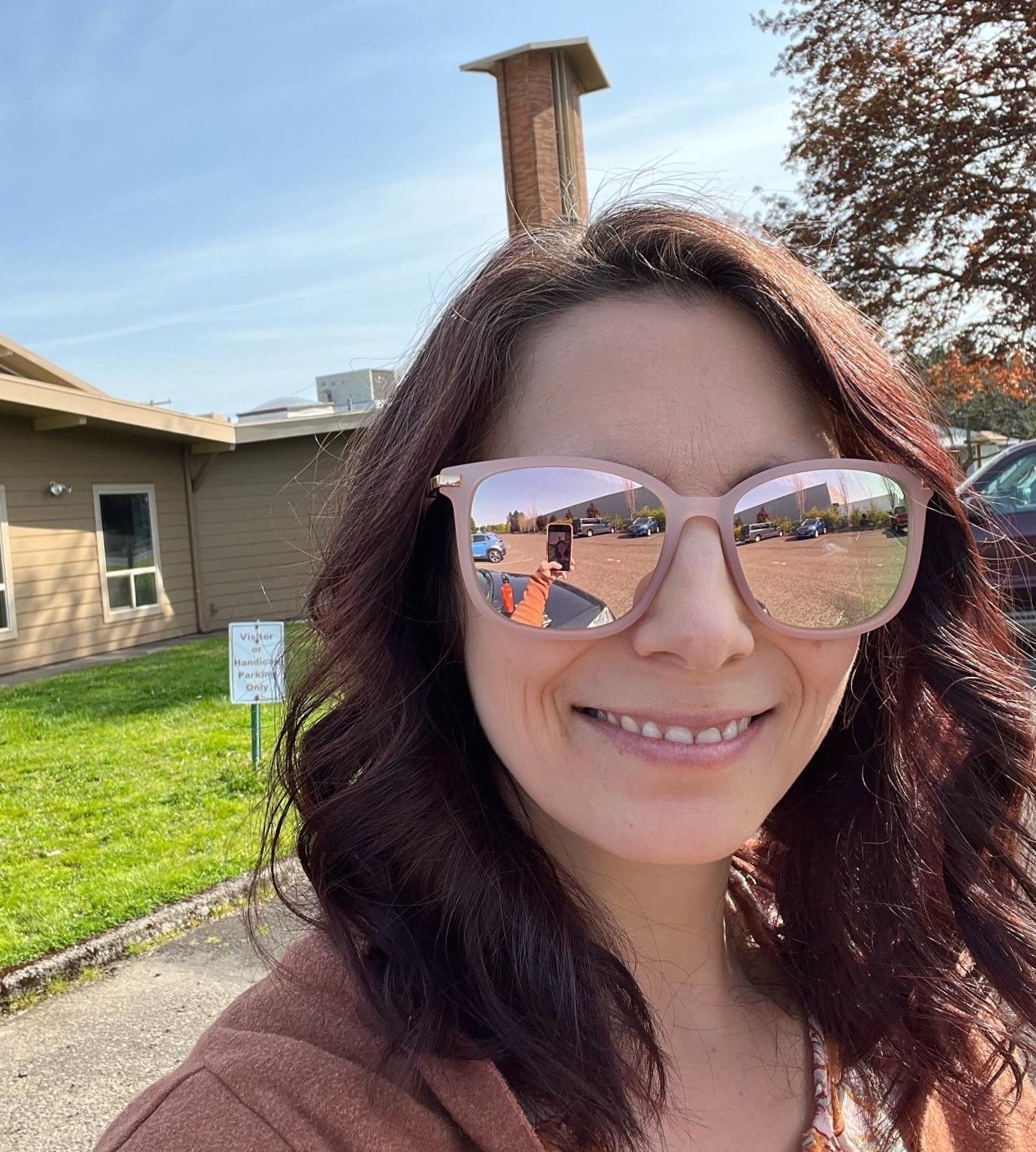P.R.A.Y. Like Hannah
This was originally a sermon given at Sherwood Community Friends Church on May 8th, 2022.
View the video HERE.
Last week, Rich asked us the question: What will you choose in the midst of disappointment? Today will be a continuation of that conversation, unplanned on our end but certainly planned by God.
Today we will be reading from the text 1 Samuel 1, and we’ll be looking at the motherhood journey of Hannah. Let me set the stage.
Context
It’s important to understand we are coming out of the time of the Judges. If you are unfamiliar with this text, this isn’t a time with a bunch of legislative rulers. Rather the judges were the best of an unruly bunch of Israelites. This was a dark period in their history. Repeatedly it says, “the Israelites did evil in the eyes of the Lord.” The book even ends with, “In those days Israel had no king; everyone did as he saw fit.” Not only was this a recognition of no earthly king, but they did not follow God as their king either.
This is where we enter into the story of Hannah. In any God story, biblical or otherwise, we see a natural flow of who we are before God, how God meets us, and who we are after God. We see this in our own story, or our testimony too.
Hannah’s Dilemma
“There was a certain man from Ramathaim, a Zuphite from the hill country of Ephraim, whose name was Elkanah son of Jeroham, the son of Elihu, son of Tohu, the son of Zuph, an Ephraimite. He had two wives; one was called Hannah and the other Peninnah. Peninnah had children, but Hannah had none. Year after year this man went up from his town to worship and sacrifice to the Lord Almighty at Shiloh, where Hophni and Phinehas, the two sons of Eli, were priests of the Lord. Whenever the day came for Elkanah to sacrifice, he would give portions of the meat to his wife Peninnah and to all her sons and daughters. But to Hannah he gave a double portion because he loved her, and the Lord had closed her womb. Because the Lord had closed Hannah’s womb, her rival kept provoking her in order to irritate her. This went on year after year. Whenever Hannah went up to the house of the Lord, her rival provoked her till she wept and would not eat. Her husband Elkanah would say to her, “Hannah, why are you weeping? Why don’t you eat? Why are you downhearted? Don’t I mean more to you than ten sons?” 1 Samuel 1:1-8, NIV
There is a lot going on in this passage. Let’s break it down.
First, Can you feel the tension between Hannah and Peninnah?
At any given time, we can identify with either the haves like Peninnah or the have-nots like Hannah.
When we receive good news or find ourselves blessed with finances, health, children, or title, it can be all too easy to look at those who are the have-nots. We wonder what they aren’t doing right, or we have all the answers and give our advice freely to them. We don’t realize the sting this may cause for something out of their grasp.
On the other hand, when we fall into the have-nots, when we find ourselves on the outside, it can take everything inside of us to not look in from the outside, wishing and hoping we could have what we are missing. We wonder what we have done wrong! We cry out WHY ME?
Our greatest struggles are often born out of comparison - comparison with others, comparison of what used to be, comparison to our idea of our future.
I’m going to say that again: Our greatest struggles are often born out of comparison - comparison with others, comparison of what used to be, comparison to our idea of our future.
To be content, we must do everything we can to stay fully present, in this moment, right here and now, without looking to the right or to the left.
What we know in our heads but fail to believe in our hearts is that our status, our budget size, or our reputation has little to no effect on how God works in and through us.
I feel it is important to say that being in the “haves” category is not a promise that God will hear our prayers or work through us any more or less than the have-nots.
Second, we don’t know the reason why Hannah was unable to have children.
The text says the Lord had closed her womb, but there’s not a reason given. There’s nothing that indicates any particular spiritual or physical reason for her infertility.
The reality is there are times we will have unanswered prayers, even for those prayers that seem like such good and righteous requests.
Third, even though there was tension in the household, Hannah still had an ally.
Elkanah loved Hannah. You might see yourself in the shoes of Elkanah. Have you loved or cared for someone who was in a constant state of despair? It can be a painful and sometimes a hurtful thing because, like Elkanah, you might be wondering - Isn’t my love enough for you?
But the Ministry of Presence reminds us it’s not enough for us to meet someone’s suffering with a trite statement like “Have you considered adoption?” to the woman struggling with infertility or “It must not be in God’s will” when someone doesn’t get the promotion their family desperately needs or “At least they aren’t suffering anymore” when there is the death of a loved one.
Fourth, We see the intentionality to show up to worship.
There were three times per year Israelite men were required to appear before the Lord at the central sanctuary - the Feast of Unleavened Bread, the Feast of Harvest (Weeks), and the Feast of Ingathering (Tabernacles). This was most likely during the Feast of Tabernacles, the feast celebrating the harvest and a time when the goodness and provision and fruitfulness of God would have been the topic of conversation. There would have been happiness and rejoicing among all the people. However, in Hannah’s despair, as you can imagine, this caused her an extra layer and reminder of her grief and what she was missing.
When we find ourselves in a dark night of the soul, it can feel impossible to just show up to where God is. But Hannah did show up. Not only did she show up, but she showed up in her pain, and she showed up with her protagonist Peninnah. She did this to give pause to the work of God and to worship and rejoice in the greatness that God is.
Rich has referenced John Wesley before, but I can’t help but to share this story of his mother, Susanna.
She was a physically unwell housewife in a small, rural town. Susanna was in a dysfunctional and unhealthy marriage to her poor and negligent preacher husband. And of her 19 children, she lost 9 in their infancy, and raised ten more pretty much by herself. When her husband was absent, she knew her children needed teaching about God and started teaching them herself. Soon her neighbors wanted to come. It was only a matter of time before hundreds would come to be led in worship and teaching by Susanna.
So how did she do it? How did Susanna, a broken and desperate woman accomplish something so earth-changing? No doubt it was through prayer. When she needed to meet the Lord, she threw her apron over her head because, as you can imagine, with ten children all around, it was the only way she could get a moment to be undisturbed. Here she would pour out her heart, grieving the loss of her babies, praying for her negligent and infuriating husband, and praying for each of her children by name, including John Wesley.
Even in our hardest and deepest griefs, do we show up in our desperate prayers to give pause to the work of God and to worship and rejoice in the greatness that God is?
Back to our text.
God Meets Hannah
“Once they had finished eating and drinking in Shiloh, Hannah stood up. Now Eli the priest was sitting on his chair by the doorpost of the Lord’s house. In her deep anguish Hannah prayed to the Lord, weeping bitterly. And she made a vow, saying, “Lord Almighty, if you will only look on your servant’s misery and remember me, and not forget your servant but give her a son, then I will give him to the Lord for all the days of his life, and no razor will ever be used on his head.’ As she kept on praying to the Lord, Eli observed her mouth. Hannah was praying in her heart, and her lips were moving but her voice was not heard. Eli thought she was drunk and said to her, ‘How long are you going to stay drunk? Put away your wine.’ ‘Not so, my lord,’ Hannah replied, ‘I am a woman who is deeply troubled. I have not been drinking wine or beer; I was pouring out my soul to the Lord. Do not take your servant for a wicked woman; I have been praying here out of my great anguish and grief.’ Eli answered, ‘Go in peace, and may the God of Israel grant you what you have asked of him.’ She said, ‘May your servant find favor in your eyes.’ Then she went her way and ate something, and her face was no longer downcast.” 1 Samuel 1:9-18
Now that was quite presumptuous of Eli, wasn’t it? To assume that Hannah was intoxicated? Yet, remember the context of our story, where we left off at the end of Judges - “Everyone did what was right in their own eyes.” In my studying of this passage in preparation, I came across a note that said it was not unlikely at all that drunkards would often find themselves wandering into the temple. This is likely why he was stationed at the door post. While Eli was a priest and a minister by vocation and call, sometimes he had to play bouncer too.
There are two specific points that jump out to me in this passage.
The First Is Hannah’s Very Authentic And Very Honest Prayer.
She’s weeping. She’s bargaining with God. She’s praying the prayers of a desperate and hurt woman. She wants something that seems so good yet so far out of her reach.
Can you relate to Hannah?
You might be asking, is it ok to pray with bitterness? Does God hear our cries when we are so tormented by a situation that we can’t help but to cry out bitterly? I say God hears those prayers, maybe even more than the rehearsed and neat prayers. In fact, the Psalms, the very prayer and songbook of Jesus himself, are two-thirds psalms of lament. There is a whole book dedicated to lamenting called Lamentations!
Some might argue that it is not our place to petition God for anything, that his will be done, and that’s the end of it. But I push back on this because Jesus himself told us in The Lord’s Prayer to ask for our daily bread. Even Jesus himself prayed in the Garden of Gethsemane for this “cup to be taken from him.”
In his book How To Pray: A Simple Guide for Normal People, Pete Grieg says this about asking in prayer: “Other aspects of prayer are wonderful, but our primary privilege as God’s children is to ask audaciously and repeatedly for everything we need, expecting him to answer, naturally or supernaturally, by whatever means he sees fit.”
We are God’s children, and he invites us into his presence with no strings attached, no qualifiers, hair disheveled, and our junkiest clothes. What mother would deny her child coming into her presence with food all over their face or an owie on a scraped-up knee and tears running down their face? Yet, our Father is kinder than the kindest mother you have ever met.
The second is that Hannah didn’t carry her burden alone.
It’s not a secret I am an advocate for doing life together with a community. There is a song by Tenth Avenue North, and the chorus’ words are:
No man is an island, we can be found
No man is an island, let your guard down
You don’t have to fight me, I am for you
We’re not meant to live this life alone
When Hannah was approached by Eli, she could have easily passed him off. She could have shied from the conversation, pulled away, and given some poor excuse for why she was rambling on to herself. Rather, she allowed Eli to be present with her. To share in her struggle. To know her pain. To be seen by another human. When we allow others into our pain, we experience freedom.
In 2019, I went to Haiti to lead a women’s retreat with about 100 women from across the nation. The night before our last day, I felt a prompt to encourage a woman on our team to share about her prayers and struggle with her son, who was struggling with addiction and was not walking God’s path. She declined.
We were in the throws of the last day, and our partner would not come up and close us out. He wanted us to keep going. Our worship team was getting fatigued. I gave the only short sermon I knew at the time. We had asked the women for testimonies about their experience at the conference. Then that same woman came to me and said she would share. When she did, we asked for others who had children they were praying for to return to Jesus to come to the front for prayer. I’m not kidding you when I say three-fourths of the women came up. There was this newfound community of sisters, bound together by a common plea, a cry for their children’s lives. There was weeping and crying and praying desperately, and there is no doubt God was present during this time.
God hears our prayers when we ask, and there is power when we ask together.
Who Is Hannah Now?
Early the next morning they arose and worshiped before the Lord and then went back to their home at Ramah. Elkanah made love to his wife Hannah, and the Lord remembered her. So in the course of time Hannah became pregnant and gave birth to a son. She named him Samuel, saying, ‘Because I asked the Lord for him.’”
“When her husband Elkanah went up with all his family to offer the annual sacrifice to the Lord and to fulfill his vow, Hannah did not go. She said to her husband, ‘After the boy is weaned, I will take him and present him before the Lord, and he will live there always.’ ‘Do what seems best to you,’ her husband Elkanah told her. ‘Stay here until you have weaned him; only may the Lord make good his word.’ So the woman stayed at home and nursed her son until she had weaned him. After he was weaned, she took the boy with her, young as he was, along with a three-year-old bull, an ephah of flour and a skin of wine, and brought him to the house of the Lord at Shiloh. When the bull had been sacrificed, they brought the boy to Eli, and she said to him, ‘Pardon me, my lord. As surely as you live, I am the woman who stood here beside you praying to the Lord. I prayed for this child, and the Lord has granted me what I asked of him. So now I give him to the Lord. For his whole life he will be given to the Lord.’ And he worshiped the Lord there.” 1 Samuel 1:19-28
Hannah was given her answer. She was given what she so desperately longed for: a son. But what we learn from Hannah is that just because God gives us something does not mean that it is for us to keep.
We must remain open-handed, ready to give back to the Lord what was only his to give in the first place. This is yielding ourselves to his direction and leading in our lives.
Responding To God
As we move into our time of guided open worship, take some time to reflect on where you see yourself in the story of Hannah.
Are you weeping bitterly in your soul because you feel unseen and unheard by God?
Maybe you have a burden, but you have brought it before your community for prayer. Maybe you have brought it to a pastor here or another ministry leader. Maybe you have shared this request with a friend.
And like the persistent widow on the judge’s door, keep knocking and keep persisting in your prayer.
Or maybe you recognize you have received the answer to your prayer, and now is the time to yield to him and his direction for what to do with that gift.
Pete Grieg put out this acronym that has helped me with my prayer life personally. I like this one because it isn’t so much about my interaction with God in prayer, instead, it allows me to live out prayer as a two-way street between God and me.
P.R.A.Y. P stands for Pause, quieting ourselves before his presence. R is for Rejoice, to glorify our God for all His goodness and faithfulness. A is for Ask, to ask God for what’s on your heart. Y is for Yield, how is God asking you to respond?
Take a few minutes to practice this now. Pause for one minute. Rejoice by meditating on Hannah’s song, found in 1 Samuel 2:1-10. Ask God for those desperate prayers you’ve been praying. Yield to His direction and what He’s telling you.
I encourage you to take a few minutes now and listen to the song Goodness of God by Bethel. Not only is this a reminder of God’s goodness and faithfulness, but it is our declaration of God’s faithfulness throughout our lives and our conscious and intentional surrender to Him.
If you enjoyed this post, you may also find value in these.









